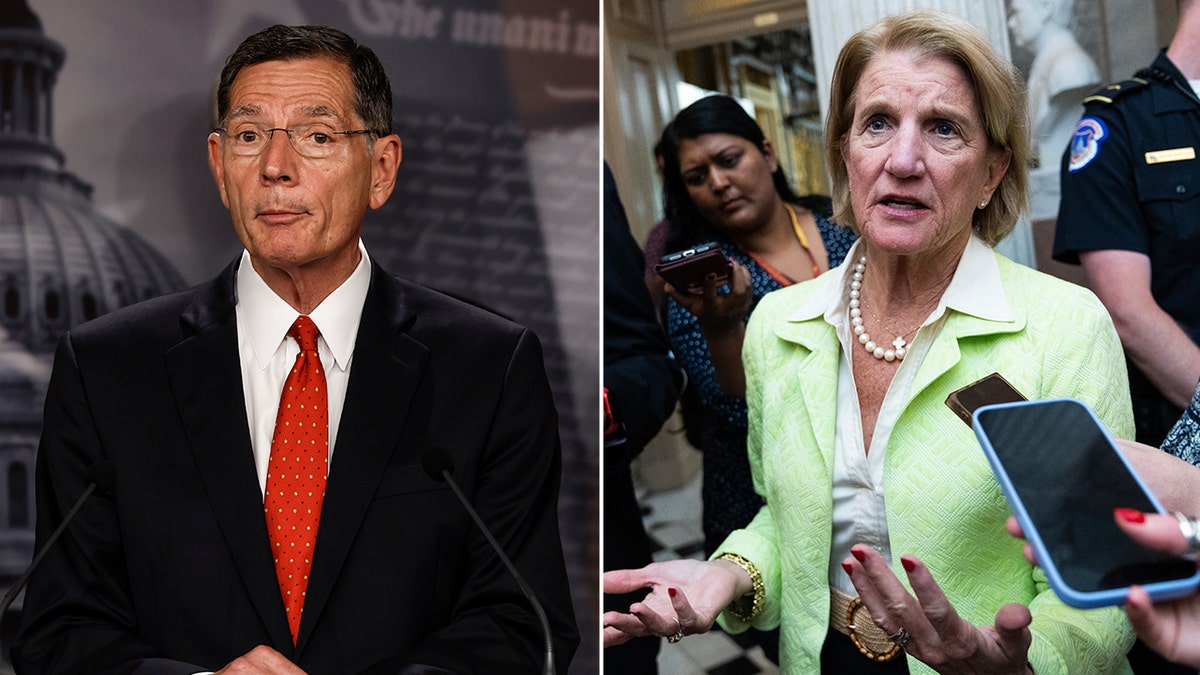New Jersey Republicans slam climate 'bailout' for Danish wind power company
New Jersey State Sen. Michael Testa Jr. joins 'Fox & Friends' to explain GOP opposition to the 'wholly unfair' legislation.
FIRST ON FOX: High-ranking Senate Republicans are calling for the nation's top energy regulator to immediately assess the impact President Biden's crackdown on fossil fuel power plants will have on electric grid reliability.
The two Republicans — Energy and Natural Resources Committee Ranking Member John Barrasso, R-Wyo., and Environment and Public Works Committee Ranking Member Shelley Moore Capito, R-W.Va. — penned a letter Wednesday to the Federal Energy Regulatory Commission's (FERC) four members. They expressed concern that Biden's power plant regulations would exacerbate grid reliability issues.
"The already-strong pressure for premature retirements of electric generating units coupled with the rising risks to electric reliability require you to convene representatives of entities subject to your jurisdiction and other interested parties in order to develop a record on the potential impact of the Clean Power Plan 2.0," Barrasso and Capito wrote.
"Without such a record, FERC’s consultations with EPA are likely to be ineffective," they continued. "EPA clearly lacks the expertise to project accurately the impact of its rulemaking on electric reliability without deeply informed and engaged participation from FERC and those subject to its jurisdiction that are charged with the obligation to generate and deliver electricity in order to meet continuous demand for electric service."

Sens. John Barrasso, R-Wyo., and Shelley Moore Capito sent the letter to FERC commissioners on Wednesday. (Getty Images)
The two GOP senators requested FERC schedule a series of technical conferences to study the administration's power plant regulations and its "unjustifiable claims about the future availability of technologies."
In May, the Environmental Protection Agency's (EPA) unveiled power plant regulations targeting fossil fuel-fired power plant emissions as part of the administration's broader climate agenda. The agency said the plan would avoid 617 million metric tons of carbon pollution through 2042 via new standards forcing coal and gas plants to either utilize carbon capture technology or shut down.
WHITE HOUSE ECO COUNCIL AT ODDS OVER TECHNOLOGY CENTRAL TO BIDEN'S GREEN GOALS
However, industry groups and experts warned that the proposal, which remains in a public comment period until early August, could lead to early retirements of reliable, dispatchable generation and, as a result, power supply shortfalls. Fossil fuels generate more than 60% of total U.S. electricity while renewable energy sources like wind and solar generate 14%, federal data shows.

President Joe Biden and EPA Administrator Michael Regan at the White House earlier this year. (Drew Angerer/Getty Images)
"As the wholesale markets’ prices are distorted by subsidies, the generation assets with the attributes required for system stability will retire and system stability will be imperiled," FERC Commissioner James Danly recently testified during a Senate Energy and Natural Resources Committee hearing. "Given these market failures, there will be, in time, a catastrophic reliability event."
The commissioner further warned of an "impending, but avoidable, reliability crisis."
CLICK HERE TO GET THE FOX NEWS APP
In their letter Wednesday, Barrasso and Capito noted Danly's comments, and those of other FERC commissioners. In addition to Danly, FERC Chairman Willie Phillips, a Biden nominee, said he is "extremely concerned when it comes to the pace of retirements that we are seeing of generators that we need for reliability on our system" during the Senate hearing.
And they also referenced comments from a separate hearing made by leaders at the North American Electric Reliability Corporation, the Regional Transmission Organization PJM, and Associated Electric Cooperative, one of the largest U.S. electric cooperatives. Each of the leaders agreed the U.S. is heading for a reliability crisis.














































